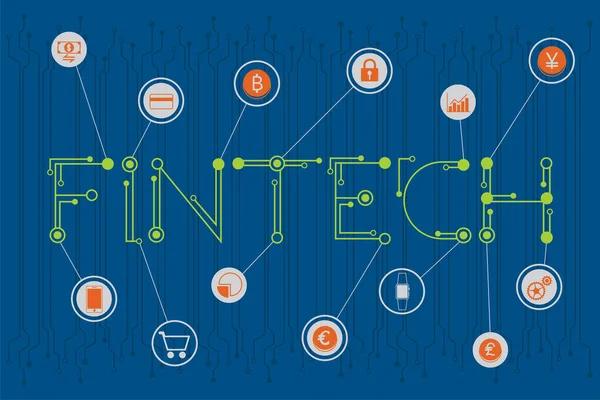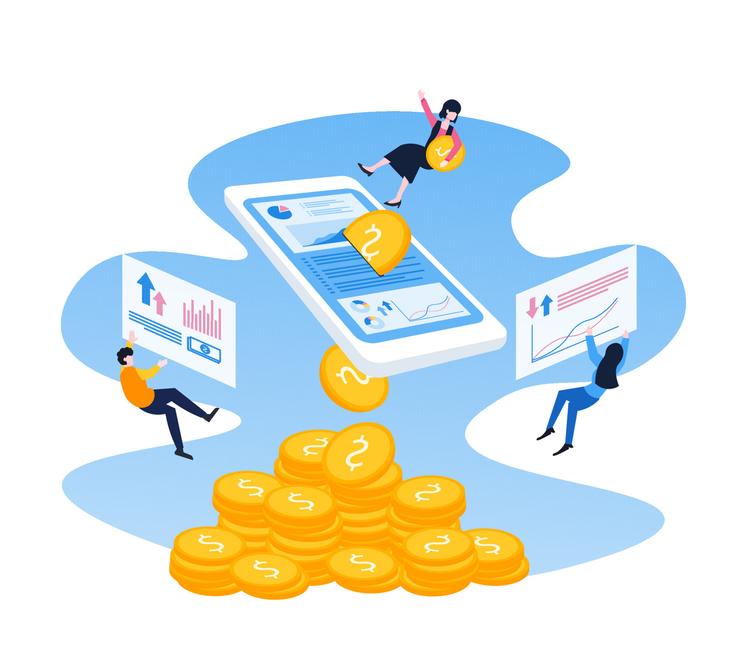
In today's digital world, the intersection between technology and finance has given rise to a transformative phenomenon: Fintechs. These innovative startups are redefining the global financial landscape, challenging established structures, and offering agile and accessible solutions for consumers and businesses alike. From mobile payments to peer-to-peer lending, the proliferation of Fintechs is fundamentally altering the way we interact with money.
In this article, we will explore in depth the revolution being led by Fintechs and their impact on our current financial world. From their emergence to their global expansion, we will examine how these companies are changing the way we understand and manage our personal and business finances. In addition, we will explore the benefits they offer consumers, the challenges they face on their path to mass adoption, and the prospects for this thrilling sector.

What are fintechs and how are they revolutionizing the financial world?
In the transformation of the traditional financial sector, Fintechs play a key role in challenging established practices and offering innovative alternatives. While traditional banks are often subject to bureaucratic processes, long waiting times, and high fees, Fintechs take a more agile and customer-centric approach. From mobile apps for instant payments to online platforms for automated investments, these companies are democratizing access to financial services previously reserved for the few.

Artificial intelligence, machine learning, data analytics, and blockchain technology are just some of the tools these companies are using to optimize processes, improve security, and offer more personalized user experiences. For example, machine learning algorithms can analyze spending patterns to offer personalized savings recommendations, while blockchain technology can ensure transparency and security in financial transactions.
On the other hand, Fintechs also offer significant benefits for businesses by providing access to financial tools and services that were previously only available to large corporations. From cash management solutions to alternative financing platforms, these companies can help businesses streamline operations, reduce costs, and access new sources of financing.
Different types of Fintechs

Fintechs span a wide range of categories, each focused on meeting the specific financial needs of consumers and businesses. Among the different types of Fintechs are:
Digital Payments Focus on facilitating digital financial transactions, both personal and commercial. Examples: PayPal, Square, and Stripe, which offer online, in-person, and mobile payment solutions. |
Loans Provide fast and convenient access to financing for individuals and businesses. Examples: LendingClub, Prosper, and SoFi, which offer peer-to-peer lending, personal loans, and student loan refinancing. |
Investments Allow users to invest in financial markets in a more accessible and transparent way. Examples: Robinhood, Acorns, and Wealthfront offer automated investment options, commission-free stock brokerage, and digitally managed portfolios. |
Wealth Management Targeted at high net worth investors, these Fintechs offer personalized and digitized asset management services. Examples: Betterment, Wealthfront, and Personal Capital, which use algorithms to optimize investment portfolios and provide financial advice. |
Insurance They use technology to simplify and improve the insurance buying and management experience. Examples: Lemonade, Oscar Health, and Root Insurance offer home, health, and auto insurance with simplified processes, transparent rates, and digital customer care. |
These Fintechs are addressing the specific financial needs of different segments of the population by offering more accessible, personalized, and transparent solutions. For example, peer-to-peer lending platforms are helping individuals and small businesses obtain financing without relying on traditional financial institutions. In addition, wealth management Fintechs are democratizing access to sophisticated investment services, allowing even investors with smaller amounts to participate in global financial markets.
Impact of Fintechs on the Economy and Society
The impact of Fintechs on the economy and society is profound and multifaceted, ranging from financial inclusion to transforming the competitive and regulatory landscape of the financial sector.
First, Fintechs are playing a crucial role in promoting financial inclusion by democratizing access to financial services. These companies use innovative technologies to overcome traditional barriers, such as the lack of banking infrastructure in rural areas or the lack of credit history among the unbanked. For example, peer-to-peer lending platforms and mobile payment applications are enabling individuals and small businesses to access financing quickly and conveniently, which previously would have been inaccessible to them.

However, this disruptive change also presents challenges and opportunities for both regulators and established financial institutions. Regulators face the challenge of maintaining a balance between fostering innovation and protecting consumers and financial stability. On the one hand, overly stringent regulations can stifle innovation and limit access to financial services. On the other hand, lax regulation can expose consumers to financial risks and undermine confidence in the system. Also, traditional financial institutions must adapt to this new competitive environment, either by collaborating with Fintechs, developing their technological solutions, or improving their existing services to maintain their relevance in the market.
The future of Fintech trends
The future of Fintechs looks set to be fertile ground for innovation and radical transformation of the financial sector. Several growing trends are defining the path these companies will take in the coming years, driven largely by technological advances such as artificial intelligence, blockchain, and Big Data.
Artificial intelligence is emerging as a key driving force behind the next wave of innovation in Fintechs. From machine learning algorithms that improve fraud detection to virtual assistants that offer personalized investment recommendations, AI is revolutionizing the way financial services are delivered. In addition, blockchain technology is gaining traction in areas such as digital identity management, transaction settlement, and digital asset issuance, offering unprecedented levels of security, transparency, and efficiency in financial transactions.

Big Data is another crucial component in the evolution of Fintechs, enabling a better understanding of customer behavior and the personalization of financial products and services. Companies are leveraging large amounts of data to develop predictive models, improve decision-making, and deliver more personalized experiences to users. In addition, the increasing availability of unstructured data, such as social networks and biometric data, is opening up new opportunities for innovation in areas such as credit assessment and risk management.
Benefits provided by Fintechs
Fintechs offer a wide range of services that can benefit both individuals and businesses by providing innovative and accessible financial solutions. Here are some practical tips on how to make the most of these platforms to improve personal and business finances.
Automated Savings Many Fintechs offer automated savings tools that can help you set and reach your financial goals. For example, apps like Acorns and Digit can round up your purchases and automatically transfer the change to a savings account, making it easy to save gradually and effortlessly. |
Automated investments Investment fintechs like Betterment and Wealthfront offer digitally managed portfolios that are tailored to your goals and risk tolerance. These platforms use algorithms to optimize your investments and minimize costs, which can help you grow your long-term wealth intelligently and efficiently. |
Alternative loans and credit If you need financing, consider the options offered by peer-to-peer lending fintechs and other alternative financing platforms. These companies often offer loans with competitive interest rates and faster application processes than traditional banks, which can help you gain access to credit more easily. |
Financial management tools Explore Fintech apps and platforms that help you manage your finances more efficiently. For example, Mint and Personal Capital offer expense tracking, budgeting, and financial planning tools that can help you make better financial decisions and optimize your resources. |
Case of Study: Takenos
Takenos is a financial technology company focused on Latin American freelancers and other cross-border workers.
Find out more about the development of this fintech in episode number 2 of the "Webstarted Startup Sessions" podcast where Javier Caruso, CEO of Webstarted, and Simón Bouché, Co-Founder of Takenos tell us about the Fintech world, introduce us to the challenges facing Fintechs, and tell us a little more in-depth about this booming new market trend 🧳
But that's not all, They will also talk about...
👉How would they define the process of "raising a startup"?
👉What are the most common mistakes and challenges?
👉What are the investment rounds like?
🔴Is now available on YouTube: https://www.youtube.com/watch?v=2H4wALKP1wA


